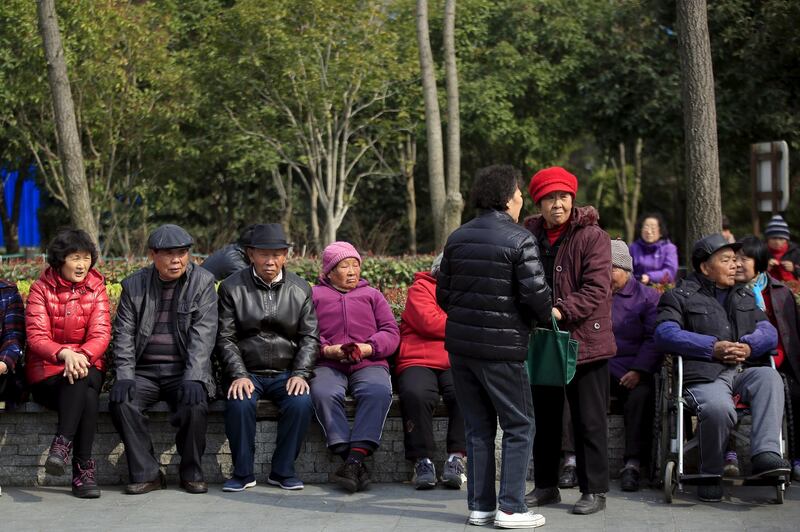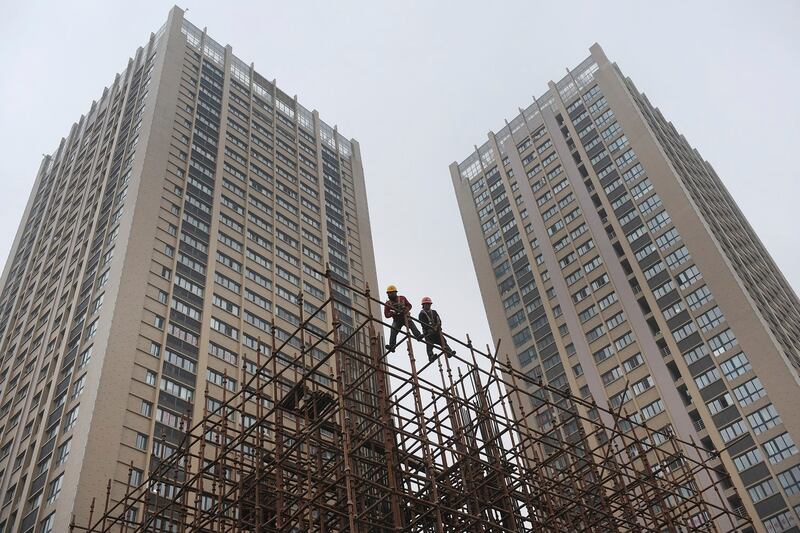UPDATED AT 03:17 a.m. ET on 2023-07-13.
China's economy is facing multiple headwinds, including a local government debt crisis, weak domestic demand and the collapse of property prices.
The trade picture is also looking bleak with exports falling 12.4% from a year earlier in June, the most in three years, figures released on Thursday showed. Imports also fell a more-than-forecast 6.8%.
Meanwhile, unemployment among young people has hit a five-year high.
It's taking its toll, with high numbers of young people dealing with depression amid an uncertain job market and uncertain futures.
China's 18-24 year-olds were found to have a 24.1% risk of depression in a government mental health survey completed last year, compared with an overall risk of 10.6% for adults generally.
In a further signal of dark clouds on the horizon, this year China’s population declined for the first time in more than half a century.
"China is entering a severe demographic crisis … becoming more and more so a demographically old country," said Dudley Poston, an emeritus professor of sociology at Texas A&M University.

The latest in China’s multiple economic woes is deflation, which economists broadly believe to be a signal of weak demand.
Data released Monday showed that the cost of the average Chinese shopping basket stayed the same in June, while the Producer Price index, a measure of inflation at the wholesale level, sharply fell, according to reports.
Nomura economist Richard Koo said in a recent episode of Bloomberg's "Odd Lots" podcast that deflation "is a very bad sign macroeconomically."
“Individually, [people trying to save money] might be doing the right things, but collectively, they may be killing the economy.”
Koo coined the term “balance sheet recession” – the idea that too much debt can plunge an economy into recession for many years, even decades – to describe Japan’s “lost years” after it fell from commanding economic heights in the late 1980s.
He argues that China faces “Japanification” if it does not come up with the right policies, such as offering support for key areas of weakness like the property sector.
The balance-sheet recession experienced around 30 years ago in Japan was triggered by a collapse in property prices, said Koo. “That is already happening in China. So few people are borrowing, so many people are paying down debt.”
Hesitant spenders
Late last year, the Chinese government announced an ambitious 12-year plan that would see household consumption driving the economy, in a move away from fiscal stimulus, or investment, which has long been Beijing’s tool for stimulating the economy.
China’s household spending accounts for just 38% of its GDP, well below the global average of 68%, while 43% of China's economy is driven by investment – about double what the U.S. economy relies on.
Some economists cheered the move, which would see a massive restructuring of the Chinese economy.
Others were more skeptical.
Writing for Foreign Affairs last month, Zhongyuan Zoe Liu and Benn Steil said, "Sensible though it is, consumption-led growth in Xi's China is doomed to fail. As Xi has done so often in the past, he will back away from the policy once the inevitable backlash from powerful constituencies, including state-owned enterprises, local governments, and the national security bureaucracy, takes hold."

It was a prescient warning. Chinese consumers are simply not spending and Beijing is already showing signs that it is ready to use fiscal stimulus measures to jumpstart the sputtering economy.
Bloomberg this week reported that "more economic support measures are imminent" with authorities signaling it was time to offer relief to the ailing property market by extending loan relief for developers.
State media ran reports this week suggesting that supportive policies were needed in the property sector in order to boost business confidence.
Economist Michael Pettis, writing for the Carnegie Endowment for International Peace, notes that household consumption comprises less than 40% of China's GDP as of 2020," versus a global average in other countries of roughly 60%. "China has by far the lowest consumption share of GDP of any economy in the world," he wrote.
Pettis argues that the reason Chinese consumption, as a share of GDP, is so low is “no mystery.”
“Chinese households retain a very low share – in the form of salaries and wages, other income, and transfers – of what they produce, so they are unable to consume more than a low share of what they produce.”
Pettis argues that Beijing’s much touted “common prosperity” policy, which will theoretically redistribute wealth from the rich to ordinary Chinese and broadly boost spending confidence, is likely to only help “at the margins.”
Back to stimulus
China’s first move back to its tried and trusted stimulus playbook is likely to focus on the property sector, and according to reports financial regulators have been stepping up pressure on banks to ease terms for property companies and extend outstanding loans.
The People's Bank of China and National Financial Regulatory Administration said in a joint statement on Monday that the aim is to ensure the delivery of homes that are under construction.

“When a large bubble bursts and asset prices collapse badly, it’s going to take five, 10 years easily to repair those balance sheets,” said Koo.
He added that the Chinese are aware of this problem.
“Once you know that this is a recession that is produced by lack of borrowers – the borrowers are not coming to borrow money because they have balance-sheet problems themselves … then the government has to step in and borrow and put that money back into the income stream, which means fiscal stimulus is absolutely essential.”
Koo said, it’s not a problem that China can export its way out of because China already has the world’s biggest trade surplus and any moves to make it bigger will face resistance from other countries. “It will cause trade friction,” he said.
Edited by Mike Firn.
Story updated to include June trade data.
